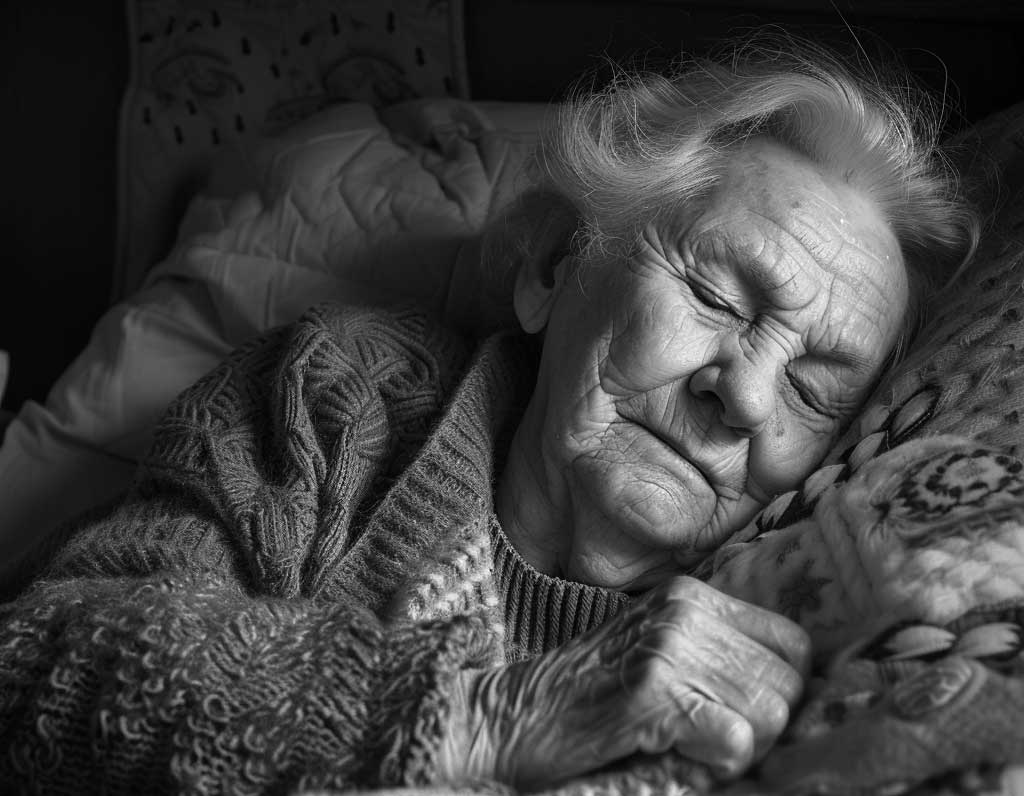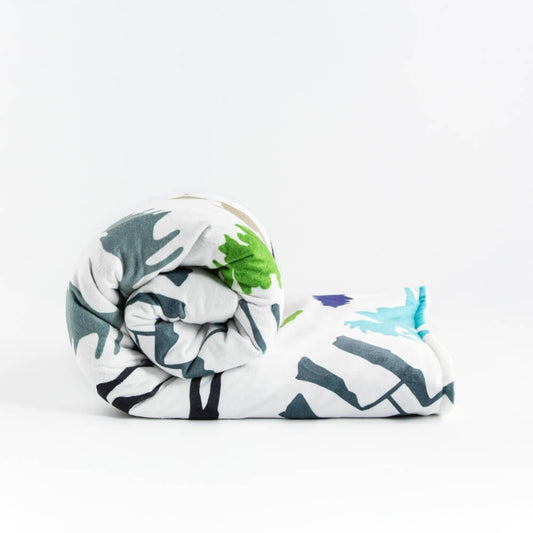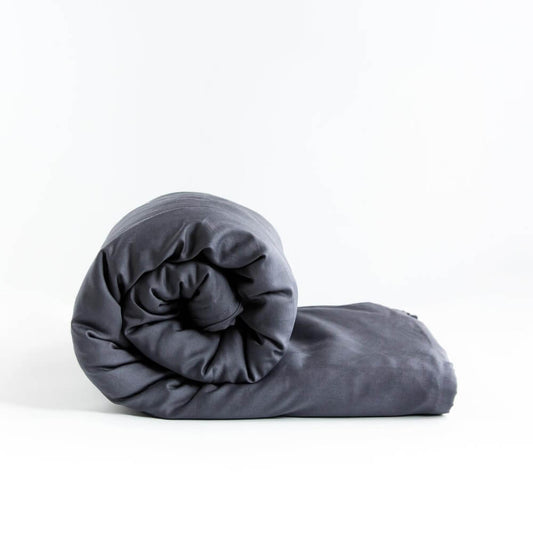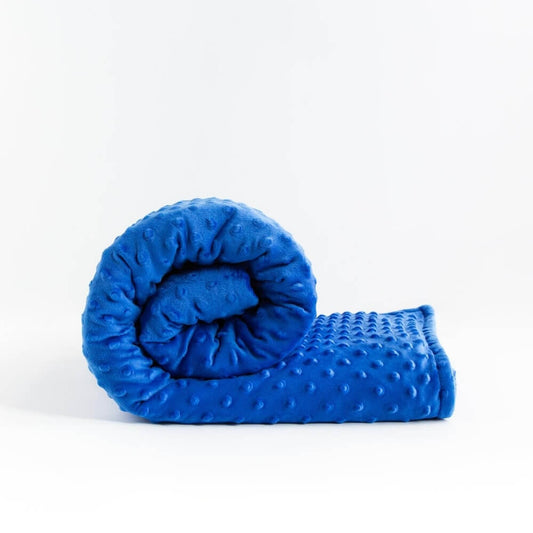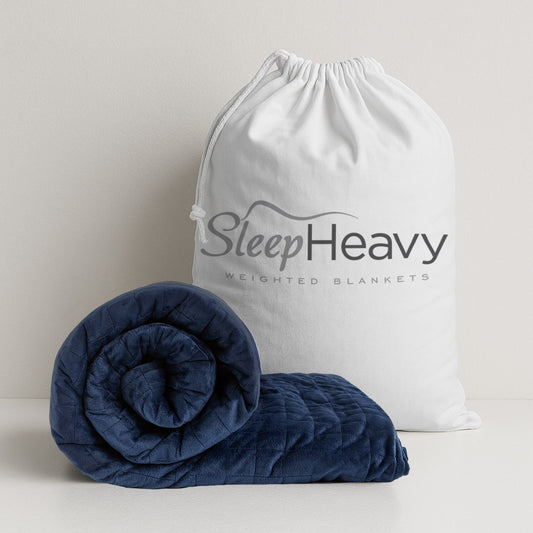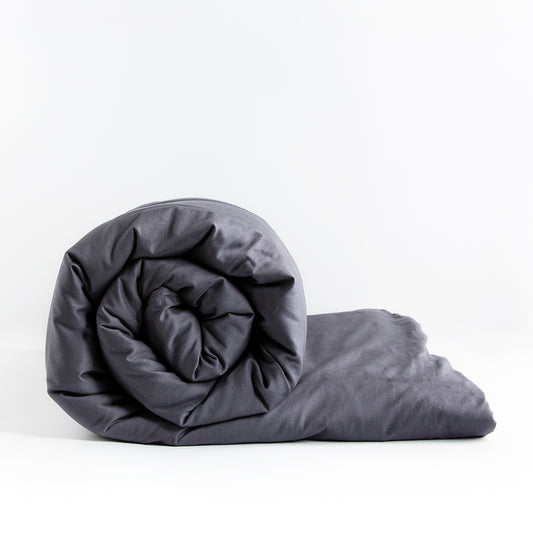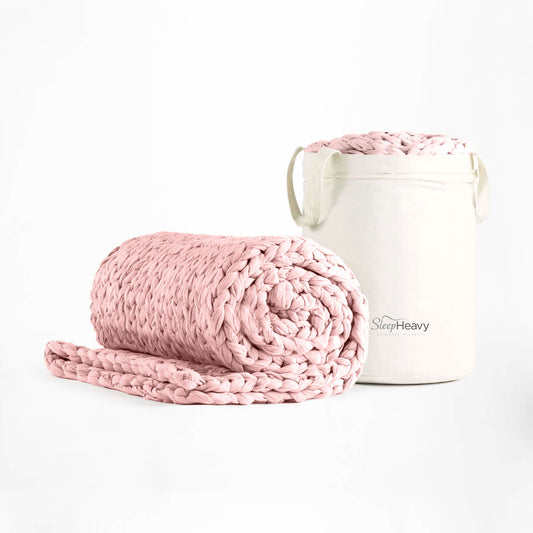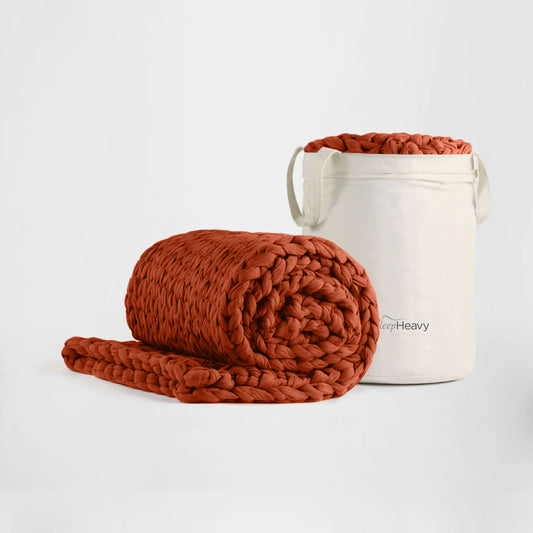What is Osteoarthritis?
Osteoarthritis (OA) is a chronic degenerative joint disorder characterised by the breakdown of cartilage and underlying bone in the joints. It affects millions of people worldwide, causing pain, stiffness, and reduced mobility, which can significantly impact quality of life. While conventional treatments for OA primarily focus on pain management and symptom relief, emerging research suggests that weighted blankets may offer a novel and complementary approach to alleviating joint discomfort and promoting well-being in individuals with OA.
Benefits of using weighted blankets for OA management.
Weighted blankets are designed to apply gentle pressure evenly across the body, creating a sensation akin to being hugged or swaddled. This deep pressure stimulation has been shown to have a calming effect on the nervous system, promoting relaxation and reducing muscle tension. For individuals with OA, who often experience chronic pain and stiffness in their joints, the soothing pressure provided by weighted blankets can offer a source of comfort and relief, helping to alleviate discomfort and improve overall well-being.
One of the primary benefits of weighted blankets for individuals with OA is its ability to promote relaxation and improve sleep quality. Sleep disturbances, such as insomnia or restless sleep, are common comorbidities of OA and can exacerbate existing symptoms. By enhancing the production of serotonin and melatonin—the neurotransmitters responsible for regulating mood and sleep-wake cycles—weighted blankets can help individuals with OA achieve deeper and more restorative sleep, leading to improved pain management and overall health outcomes.
Moreover, weighted blankets have been shown to reduce levels of cortisol—the stress hormone associated with inflammation and pain—while increasing levels of oxytocin and endorphins—the body's natural pain-relieving and mood-enhancing hormones. By modulating the body's stress response and promoting the release of feel-good hormones, weighted blankets can help individuals with OA cope more effectively with pain and stress, leading to improved physical and emotional well-being.
Several randomised controlled studies have investigated the effects of weighted blankets on pain and sleep quality in individuals with chronic pain conditions, providing empirical evidence of their efficacy. While there is a lack of specific randomised controlled trials focusing solely on OA, research in related chronic pain populations supports the potential therapeutic benefits of weighted blankets for OA management.
For instance, a study published in the Journal of Clinical Sleep Medicine examined the effects of a weighted blanket intervention on sleep quality and pain in adults with chronic insomnia and fibromyalgia—a condition characterised by widespread musculoskeletal pain. The results showed that participants who used the weighted blanket reported improvements in sleep onset latency, sleep duration, and pain severity compared to those who used a control blanket without added weight.
Another randomised controlled trial, published in the Journal of Alternative and Complementary Medicine, evaluated the effects of deep pressure stimulation—a key component of weighted blankets—on pain and anxiety in individuals with chronic lower back pain. The study found that participants who received deep pressure stimulation experienced reductions in pain intensity and anxiety levels, highlighting the potential therapeutic value of this sensory modulation technique for chronic pain management.
In addition to clinical studies, there is a growing body of anecdotal evidence supporting the benefits of weighted blankets for individuals with OA. Many individuals who use weighted blankets report experiencing relief from joint pain and stiffness, as well as improvements in sleep quality and overall well-being. These personal testimonials corroborate the findings of scientific research, underscoring the potential therapeutic value of weighted blankets as a non-pharmacological intervention for OA management.
It's important to note that while weighted blankets can be a helpful tool for managing OA symptoms, they are not a standalone treatment. A comprehensive treatment plan for OA may include a combination of medication, physical therapy, exercise, and lifestyle modifications tailored to the individual's specific needs. However, for those seeking natural and non-invasive methods of pain management and symptom relief, weighted blankets offer a promising adjunctive therapy worth exploring.
In conclusion, the therapeutic benefits of weighted blankets for individuals with OA are supported by both scientific research and anecdotal evidence. By providing deep pressure stimulation and promoting relaxation, these therapeutic blankets offer a comforting and holistic approach to managing joint discomfort and improving overall well-being in individuals with OA. As awareness of their efficacy continues to grow, weighted blankets are poised to become an integral component of holistic approaches to chronic pain management, empowering individuals to find comfort, relief, and tranquility in their daily lives.
References:
- Onen, S. H., Alloui, A., Gross, A., Eschallier, A., & Dubray, C. (2001). The effects of total sleep deprivation, selective sleep interruption and sleep recovery on pain tolerance thresholds in healthy subjects. Journal of Sleep Research, 10(1), 35-42.
- Goyal, M., Singh, S., Sibinga, E. M., Gould, N. F., Rowland-Seymour, A., Sharma, R., ... & Ranasinghe, P. D. (2014). Meditation programs for psychological stress and well-being: a systematic review and meta-analysis. JAMA internal medicine, 174(3), 357-368.
- Morin, C. M., Vallières, A., Guay, B., Ivers, H., Savard, J., Mérette, C., ... & Baillargeon, L. (2009). Cognitive behavioral therapy, singly and combined with medication, for persistent insomnia: a randomized controlled trial. Jama, 301(19), 2005-2015.

